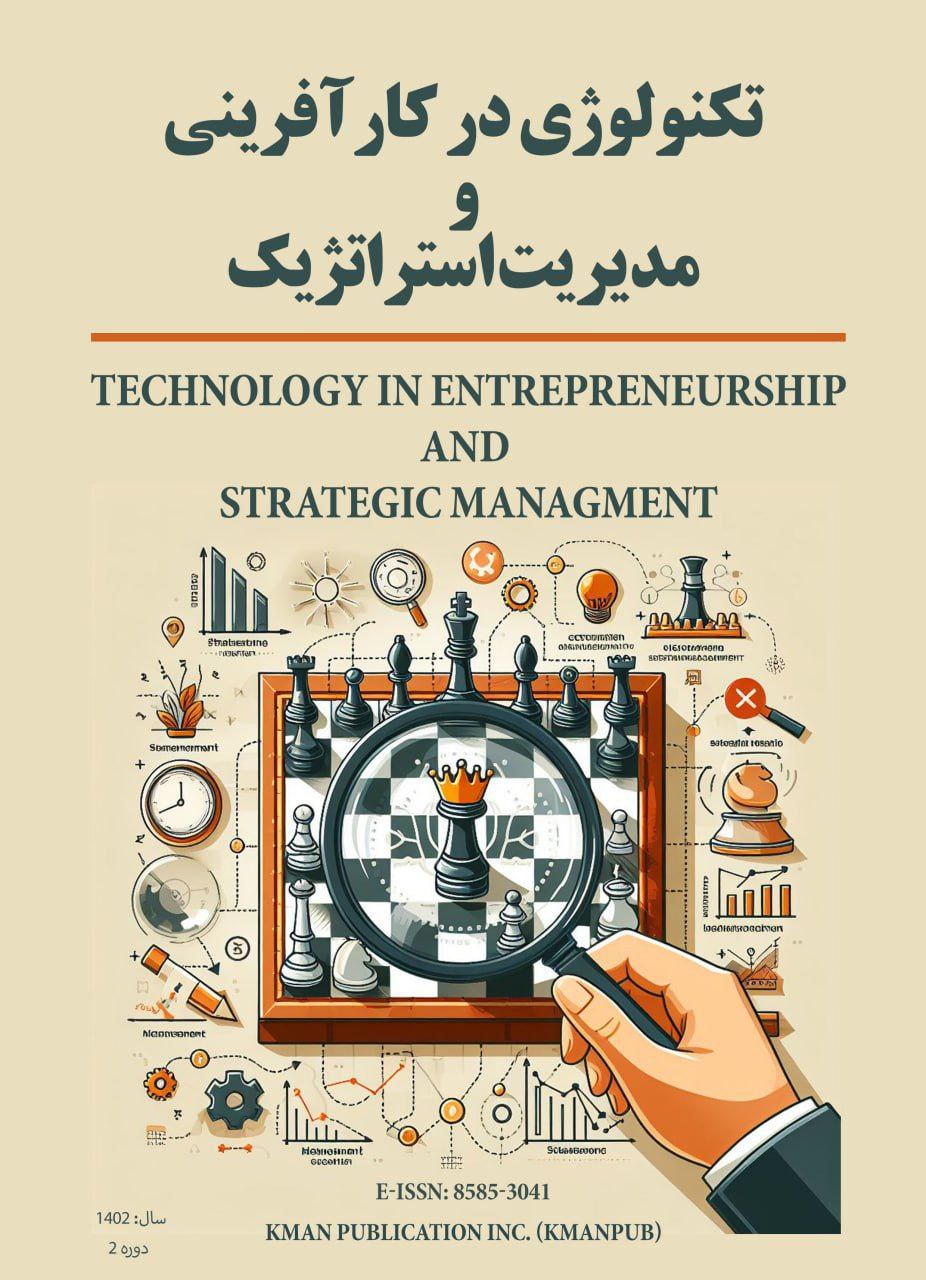راهکارهای کارآفرینی اجتماعی مبتنی بر فناوری برای مقابله با بیخانمانی
کلمات کلیدی:
کارآفرینی اجتماعی, بیخانمانی, نوآوریهای فناورانه, پایداری, مشارکت جامعهچکیده
این مطالعه با هدف بررسی چگونگی استفاده مؤثر از نوآوریهای فناورانه و کارآفرینی اجتماعی برای رویارویی با مسئله بیخانمانی انجام شدهاست، با تمرکز بر شناسایی راهکارهای پایدار و نوآورانهای که میتوانند به بهبود شرایط زندگی و ادغام اجتماعی افراد بیخانمان کمک کنند. با استفاده از رویکرد تحقیق کیفی، دادهها از طریق مصاحبههای نیمهساختارمند با ۲۷ شرکتکننده شامل کارآفرینان اجتماعی، متخصصین فناوری اطلاعات، فعالان حوزه بیخانمانی و افرادی که تجربه بیخانمانی داشتهاند، جمعآوری شدهاست. تجزیه و تحلیل موضوعی برای شناسایی مضامین اصلی و فرعی انجام شد. تحلیل نشان داد که شش مضمون اصلی شامل فناوریهای نوین، نوآوری در خدمات اجتماعی، دسترسی به منابع، مشارکت جامعه، پایداری و توسعه، و تأثیرات اجتماعی و فرهنگی است. این مضامین شامل استراتژیهای مختلفی بود، از استفاده از اپلیکیشنهای موبایل و پلتفرمهای آنلاین برای تسهیل ارتباط و مدیریت دادهها گرفته تا ابتکارات کارآفرینی اجتماعی که به بهبود دسترسی به منابع و ترویج اهداف توسعه پایدار میپردازند. مطالعه نتیجه میگیرد که نوآوریهای فناورانه و کارآفرینی اجتماعی پتانسیل قابل توجهی برای مقابله با بیخانمانی دارند، با ارائه راهکارهای پایدار و تسهیل ادغام اجتماعی. این تحقیق بر اهمیت مشارکت جامعه و نیاز به رویکرد چندبعدی که جنبههای اجتماعی و فرهنگی بیخانمانی را در نظر میگیرد، تأکید دارد.
دانلودها
مراجع
Belz, F.-M., & Binder, J. K. (2015). Sustainable Entrepreneurship: A Convergent Process Model. Business Strategy and the
Environment. https://doi.org/10.1002/bse.1887
Chandran, D., & Aleidi, A. (2018). Analyzing the Influence of Gender Stereotypes and Social Norms on Female IT
Entrepreneurial Intention in Saudi Arabia. https://doi.org/10.24251/hicss.2018.519
Frechette, C., Diasio, S., Luckett, M., Trocchia, P. J., & Natali, S. (2023). Immersive Technology as a Social Marketing Tool:
Exploring the Impact of 360-Video &Amp; Virtual Reality on Intent to Help and Attitudes Toward the Homeless. Social
Marketing Quarterly. https://doi.org/10.1177/15245004221150796
Harb, Y., & Shang, Y. (2021). Linking Information Technology and Entrepreneurship: A Literature Review.
https://doi.org/10.24251/hicss.2021.610
Heaslip, V., Richer, S., Simkhada, B., Doğan, H., & Green, S. (2021). Use of Technology to Promote Health and Wellbeing of
People Who Are Homeless: A Systematic Review. International journal of environmental research and public health.
https://doi.org/10.3390/ijerph18136845
Herutomo, A., Dhewanto, W., & Prasetio, E. A. (2022). Social Entrepreneurship and Sustainable Development Goals: A
Conceptual Framework. European Conference on Innovation and Entrepreneurship.
https://doi.org/10.34190/ecie.17.1.505
Kraus, S., Palmer, C., Kailer, N., Kallinger, F. L., & Spitzer, J. (2018). Digital Entrepreneurship. International Journal of
Entrepreneurial Behaviour & Research. https://doi.org/10.1108/ijebr-06-2018-0425
Li, B. (2023). Effects of Digital Economy on Social Entrepreneurship: Evidence From China. Managerial and Decision
Economics. https://doi.org/10.1002/mde.3946
Meanwell, E. (2012). Experiencing Homelessness: A Review of Recent Literature. Sociology Compass.
https://doi.org/10.1111/j.1751-9020.2011.00432.x
Secundo, G., Vecchio, P. D., & Mele, G. (2020). Social Media for Entrepreneurship: Myth or Reality? A Structured Literature
Review and a Future Research Agenda. International Journal of Entrepreneurial Behaviour & Research.
https://doi.org/10.1108/ijebr-07-2020-0453
Weller, S., & Ran, B. (2020). Social Entrepreneurship: The Logic of Paradox. Sustainability.












